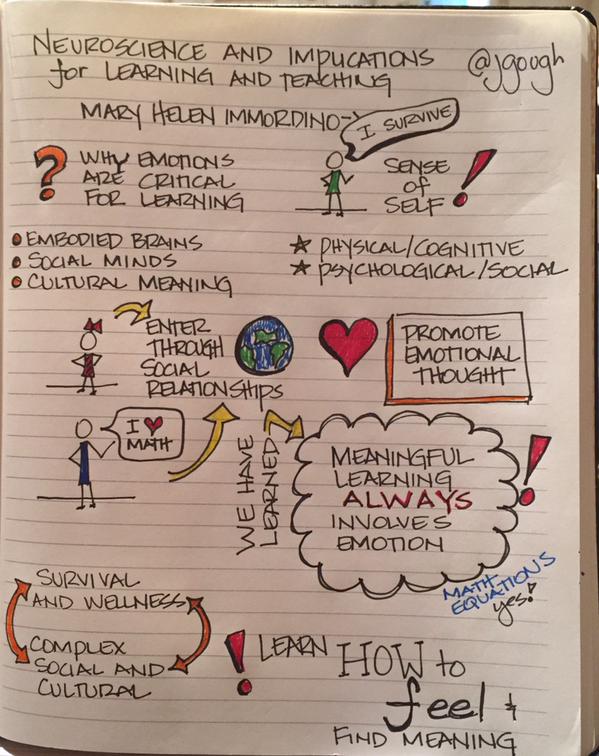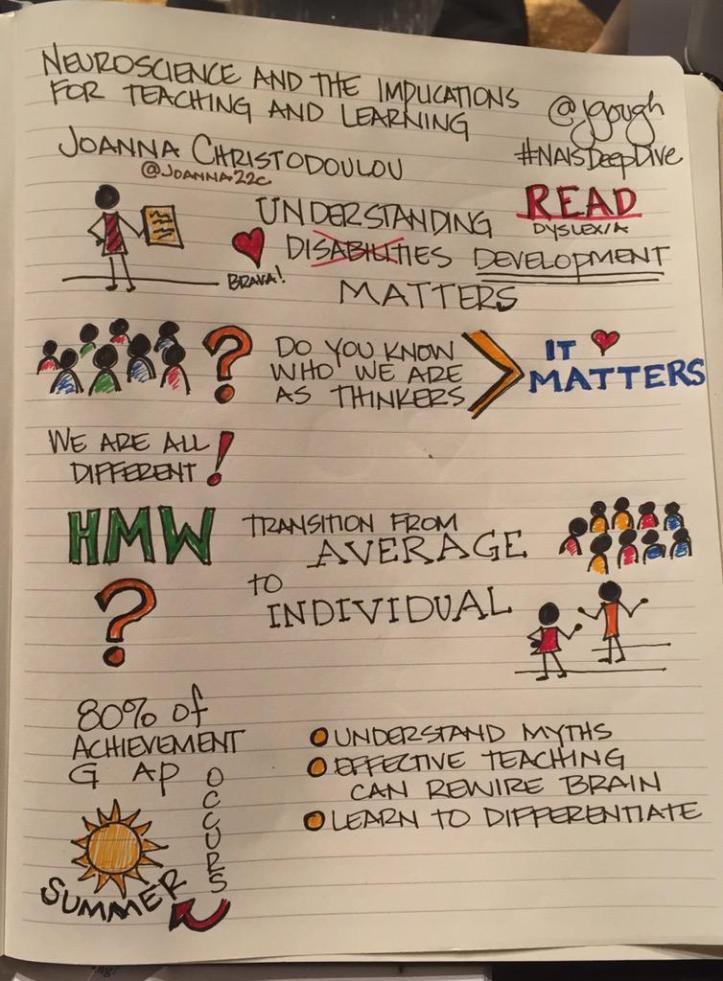Neuroscience and the Implications for Learning and Teaching
What does the latest neuro science research tell us about how children learn and what are the implications for schools and teachers? What should teachers and schools do differently and how do we get them to do this?
Mary Helen Immordino-Yang: The most provocative take-aways from learning and neuroscience research.
Joanna Christodoulou (@Joanna22c): The connection between education and cognitive neuroscience as it applies to reading development, difficulties, and intervention.
Facilitated discussion (Martha Haakmat, @marthahaakmat): As a practical matter, how are schools actually using the learning research? How do we encourage schools to integrate this new knowledge?
From Mary Helen Immordino-Yang:
Meaningful learning ALWAYS involves emotion! Learn how to feel and find meaning. Notice and note. Don’t waste emotion on the irrelevant. Concentrate of the feel in intrinsic power. Emotions are not separate from cognition.
When we thing about learning, we completely miss the fact that knowledge, its usefulness, its application is emotional thought. It’s in the the overlap between cognitive and affective processing.
From Joanna Christodoulou:
Effective teaching can rewire a brain. Learners who struggle need alternate learning pathways. It is imperative that we know our learners, meet them where they are, and empower/embolden them to take action to learn.

I am honored to be an invited participant as NAIS gathers a group of expert educators, psychologists, and thought leaders at Vanderbilt University’s Peabody College of Education in Nashville, Tennessee, to discuss advances in the science of learning and what it tells us about teaching, curricula, and schools on May 19-20 for its fourth Deep Dive: NAIS Explores the Science of Learning and 21st Century Schools.